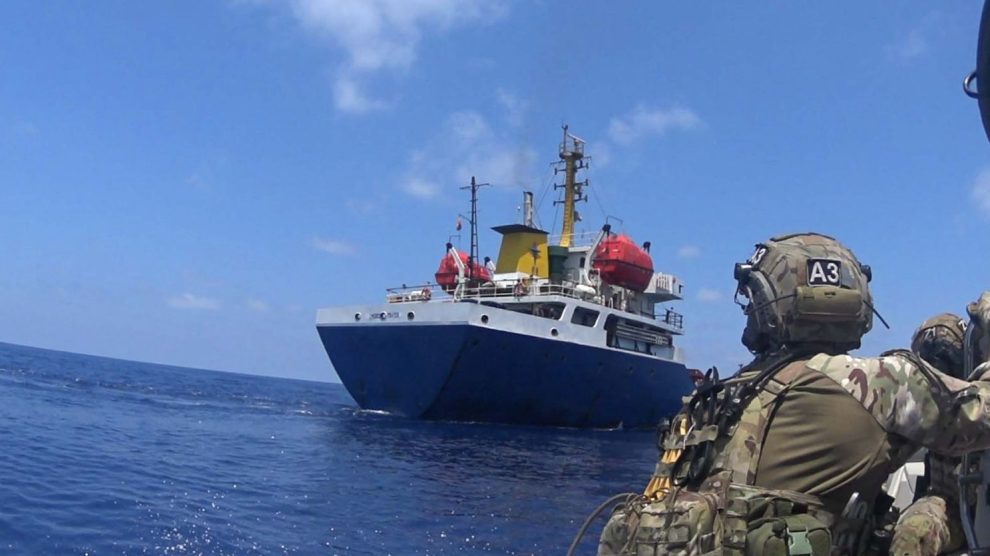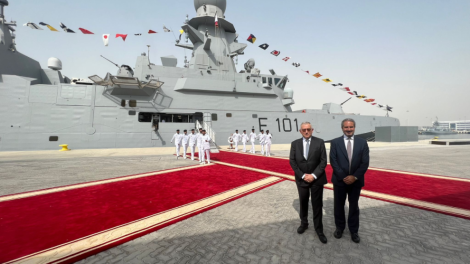The change of the guard. During a ceremony held today, the European Union officially changed command of Operation EUNAVFOR MED IRINI, their air and sea mission responsible for enforcing the United Nations arms embargo on Libya. Italian Rear-Admiral Valentino Rinaldi assumed the role from Italian Rear-Admiral Stefano Turchetto, who had been in post since October 1, 2021.
- According to Admiral Giuseppe Cavo Dragone, the Italian Chief of Defence Staff and future chairman of the NATO military committee, this personnel change signifies “a strong message of confidence” from the European Union to Italy and its maritime role.
- Rear-Admiral Rinaldi previously served as the tactical commander of Operation Irini from April 1 to September 30, 2023.
- Italy is providing support to the mission by deploying the patrol vessel Nave Comandante Borsini and aerial assets, such as drones.
The results of Irini’s operation. “Launched on March 31, 2020, Operation EUNAVFOR MED IRINI is an essential part of the European Union’s strategy to stabilise Libya through political, military, economic, and humanitarian efforts.
- As of May 2024, the mission has investigated thousands of ships, monitored 1,480 suspicious flights, and conducted surveillance on 25 airports, 16 ports, and oil terminals.
- The mission has boarded and inspected suspicious ships on 28 occasions, seizing cargoes suspected of violating the UN arms embargo, and redirecting these vessels to ports in EU member states on at least three occasions.”
The renewed effort. On May 31, the United Nations Security Council voted to extend, for another year, the measures related to the enforcement of the arms embargo on Libya. This approval was made through resolution number 2733.
- The resolution permits member states to conduct inspections of ships that are thought to be disregarding UN resolutions, in international waters near the coast of Libya.
- The updated UN resolution alters the previous resolution 2292 from 2016, allowing all member states to confiscate and dispose of prohibited items, such as weapons, in international waters near Libya.





